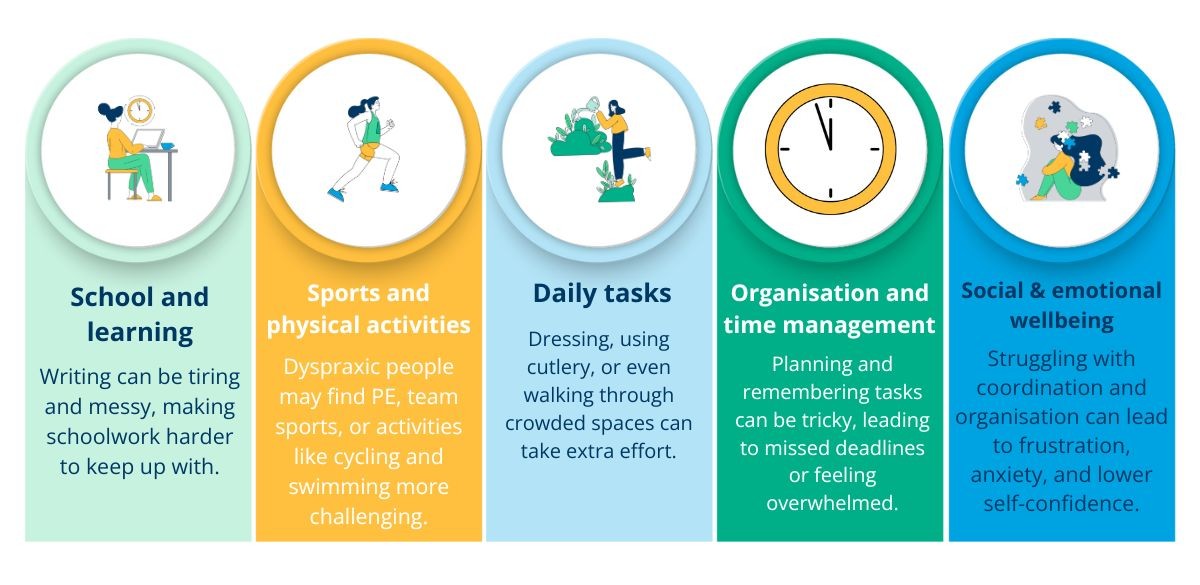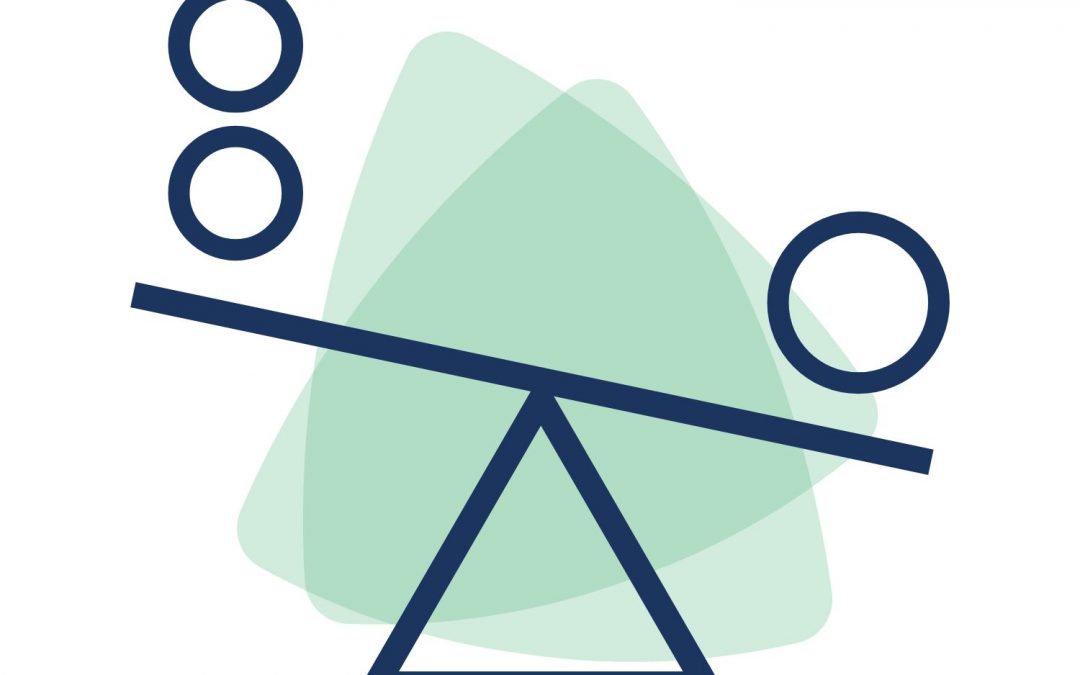Dyspraxia, (also known as Developmental Coordination Disorder (DCD)), affects movement, coordination, and planning skills. Dyspraxic people often struggle with coordination and find tasks like handwriting, tying shoelaces or organising thoughts challenging. While it’s not as widely recognised as conditions like dyslexia or ADHD, it can have a big impact on daily life.
In this blog, we’ll answer the question ‘What is dyspraxia?,’ including key traits, how it affects daily life and how Aim Forward can help you access support.
Common characteristics of dyspraxia
Dyspraxia affects people in different ways, but some common challenges include:
Movement and coordination
- Fine motor difficulties – Struggles with writing, using buttons or zippers, tying shoelaces, or gripping small objects.
- Gross motor challenges – Difficulty with balance, spatial awareness, running, jumping, or participating in sports.
Thinking and processing
- Organisation and sequencing issues – Finding it hard to plan and complete multi-step tasks, follow instructions, or manage time effectively.
- Slow processing speed – Needing extra time to take in information or respond to tasks.
Sensory sensitivities
- Over- or undersensitivity to touch, sound, light, or textures, making certain environments overwhelming or uncomfortable.
Speech and Language
- Challenges with speech clarity, pronunciation, or expressing thoughts fluently.
How dyspraxia affects daily life
Dyspraxia isn’t just about movement—it can impact many areas of life, including:

While these challenges can be frustrating, getting support can make everyday life easier.
How Aim Forward can help
At Aim Forward, we understand that every dyspraxic person has their strengths and struggles. That’s why we offer tailored support to help individuals manage challenges and build confidence.
✅ Comprehensive assessments – We help identify dyspraxia and overlapping learning difficulties, like ADHD or dyslexia.
✅ Personalised strategies – After an assessment, we can provide practical and personal recommendations to help with organisation and daily tasks.
✅ Coaching and support – We work with individuals to embed new strategies and build confidence in managing dyspraxia-related challenges.
Dyspraxia can present unique challenges, but with understandingand tailored support, dyspraxic people can thrive in school, work, and daily life.
If you or someone you know might have dyspraxia, remember, you’re not alone. Aim Forward is here to help you understand your strengths, develop new strategies, and navigate life confidentially.


Recent Comments